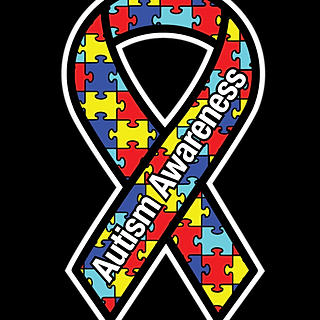'Atypical' - Luke Williams Blog Review
- Luke Williams
- Aug 27, 2017
- 6 min read
Some rare spare time over the past weekend allowed my partner and I to watch the highly anticipated new Netflix comedy series ‘Atypical.’ Atypical ultimately looks to explore the life of an eighteen-year-old male, Sam, who happens to be on the autism spectrum. It is a coming of age comedy series exploring Sam’s life and his attempts to find a girlfriend.
As always, reactions to programs such as ‘Atypical’ are mixed but there are many educational and valuable ideas as a result of this fantastic show. Firstly, lets commend Netflix for showcasing something with true meaning, and a topic that has a connection to millions of people across the globe. Personally, I like the way that the director has showcased Sam’s family. An often message that we at Lend a hand to Hugo assert is that a diagnosis doesn’t only affect the individual, but the family also are affected. Atypical showcases Sam’s families’ experiences having a son and brother on the spectrum - Mum’s consumed by it, Dad’s hurt and the sister is ignored (providing the concept of ‘the forgotten sibling.’)
‘Atypical’ is neither a sob story nor disheartening, it works to be humorous and entertaining, and is ultimately appealing to people of all backgrounds. The greatest and most powerful message that ‘Atypical’ emphasizes is to be open to people of all abilities, to offer guidance and to show support when necessary. Sam’s core group of friends, and of course his family are better for knowing him, and appreciate the small, but major victories – such as a hug from father to son, or his first girlfriend - Activities and traits that should be accessible and achievable for everyone. Whilst the representation of Sam’s mother, Elsa, was somewhat upsetting, it did make some sense. Elsa had cared and looked out for Sam his whole life. She had been an advocate, a mother and a best friend. Now that Sam is entering adulthood and making decisions on his own behalf, Elsa falls into a midlife crisis and to avoid breaking point, she starts spending time with a barman almost half her age. The result of her not having her own personal life (away from Sam) caused conflict and her unfaithful acts behind the back of her Husband. Her heavy involvement in Sam’s decision making became a norm, and letting go was difficult – a reality for every parent, however in this case it was somewhat more emotional due to the fact that she was more than just a Mother to Sam. I’m eager to see how the character of Elsa unfolds throughout season two, especially as Doug, her husband has just found out about her affair.
Doug, Sam’s Father is a typical, regular Dad, and whilst he did have his struggles early in not accepting that he had a son on the spectrum, he’s now doing better and finding ways to further connect and have a relationship with Sam. Whilst the ‘unaccepting’ father trait can be somewhat stereotypical, I think it does assert a valuable message to future parents, both mother and father. That message essentially being that it is okay if your son/daughter has different challenges. The reality of life is that we all do have different challenges, and we’re all working to alleviate them. Never be afraid, and despite some dark times, there will be a light, and Atypical looks to paint autism in a light that is bright and vibrant (much like the Lend a hand to Hugo logo,) showcasing that life with autism isn’t so bad after all. Seeking a diagnosis is not a bad thing, it’s a good thing, because you’re accepting your child’s differences, and become to appreciate and understand them for who they are, instead of what they have. Acceptance is the key, and the more we can accept, the more an individual and family will blossom.
The representation of Sam’s sister Casey is almost perfect – smart, funny and a well-grounded teenage girl. She cares for Sam but in the same sense she is a typical teenage sister, who banters and argues with her brother.
Sam’s character is familiar. He’s high-functioning of course, because high functioning makes the best TV. He’s an A-Grade student, however his main challenges come in that he’s over literal and not so good at reading social cues, exchanging small talk, dating, and forming relationships. He’s socially awkward. However Sam and his therapist Julia are working towards improving these skills. From a charity perspective, I enjoyed how the show focused on Sam’s meetings with his therapist, where he could speak about his feelings. It showcased where the majority of Lend a hand to Hugo’s funds go, and why raising money for therapies and learning resources is so important. What I didn't appreciate however, was the representation of Sam's crush on his therapist. Whilst this could be possible in some instances, it was incredibly important that the show did not enforce ideas such as this into the minds of people whom don't know a lot about autism - because every individual is different.
The voice-overs from Sam work to take us into his world, provide perspective, and showcases that he does have a mind (which can be severely missed in today’s society.)
“People think I don’t know when I’m being picked on, but I do,” says Sam. “I just don’t always know why, which in some ways is worse.”
In a way, the representation of Sam is brilliant, because there are so many high functioning teenagers on the spectrum whom are looking for ways to find friends and develop socially, but unfortunately the acceptance isn’t quite there – there is still a surrounding stigma associated with people on the spectrum and their different abilities. That stigma is generally based around the limitations of an individual on the spectrum. This is something I can confidently say as a year twelve student with several close friends and a nephew on the spectrum - I witness it first hand every day. As we always say, no two individuals affected by autism are the same, however those who are high functioning are often dehumanized because they are ‘weird’ or ‘not normal,’ and often classified as ‘nerds.’ When in fact, people don’t even realise that they may be on the spectrum or affected by a different ability. The labelling through words such as ‘weird’ and ‘not normal’ is ludicrous. There is no set criteria for ‘weird’ or ‘not normal’ because we are all weird and differently normal in our own little ways. That is what makes our society so valuable. So next time you shame someone because they’re ‘not normal,’ think to yourself, “what is ‘normal?,’” because you probably aren’t so normal yourself.
As Atypical works gags into its more practical threads, it is amusing, but it is also incredibly familiar. Following completion of the series, viewers without a connection to autism, or other different abilities may put Sam into that pigeonhole and think they understand what every individual on the spectrum are experiencing. But in reality, autism is such a complex disorder, and the beauty of it is that we continue to learn more about it each and every day. When you view the series, it’s very important not to generalise autism - Sam’s behaviours are just one example of millions from across the globe. No two individuals are affected the same.
Whilst I am still processing information, and forming my personal values, there are always going to be people whom are more qualified than me to review ‘Atypical,’ like someone who is actually on the spectrum, or their family members, you know - people who experience autism first hand. But from my point of view, and my sisters, her husbands, and of course my nephew’s – ‘Atypical’ looks as though it has been well-researched with input from experts, and perhaps even some individuals who are on the spectrum themselves. Looking into the future, if ‘Atypical’ continues to develop into further seasons, I personally I believe that it would be fantastic to explore different examples of different individuals on the spectrum, such as the severity of someone on the spectrum. This could be achieved through the mothers group that has already been established in season one. This would work to capture and showcase the perspective that all individuals on the spectrum are affected differently, and that each individual varies through strengths and weaknesses. You can view the Atypical trailer by viewing the link below:







































Comments